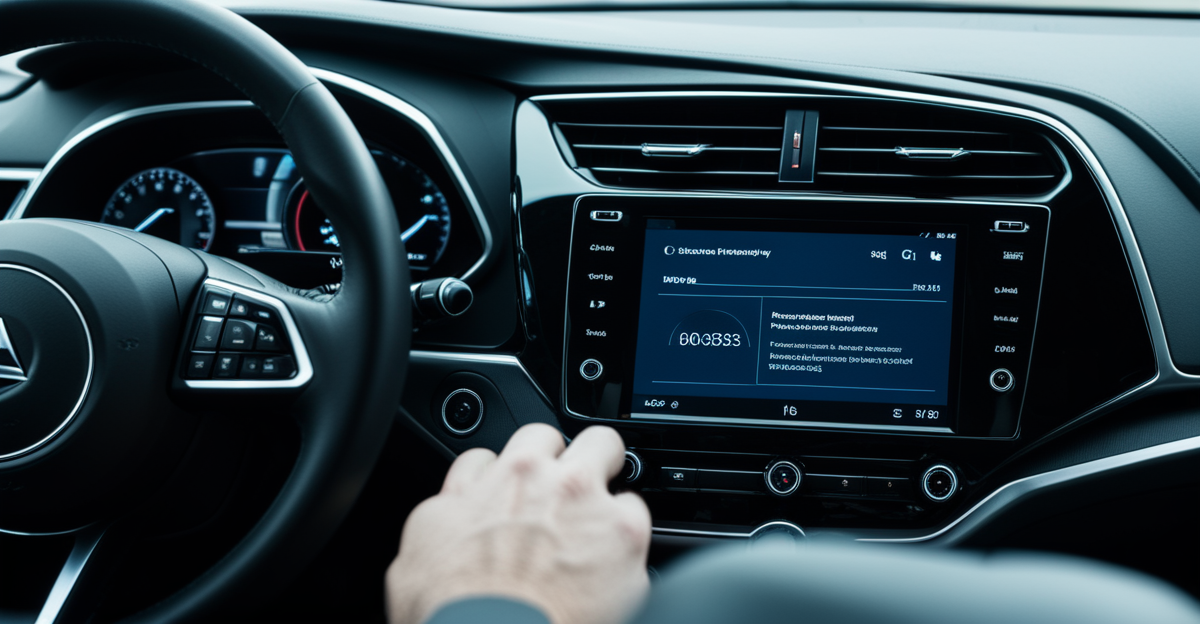Assessing Current Readiness in the UK Automotive Industry
The UK automotive industry remains a significant force, boasting a strong global market position rooted in manufacturing excellence and innovation. However, evaluating technological readiness reveals nuances. While many UK manufacturers are actively integrating advanced systems like electrification and automation, the overall adoption rate of new automotive technologies varies across companies, with some leading the way and others trailing.
Recent industry analysis shows notable advancements in electric vehicle (EV) components, battery technology, and connected systems. Benchmark data highlights that UK firms are competitive but must accelerate to match global leaders, particularly in scaling digital integration and smart technologies.
Also to discover : How Can Emerging Technologies Reshape the Future of the UK Automotive Industry?
Investment in R&D and innovation underpins progress, yet readiness encompasses not only technology deployment but also workforce skills and infrastructure support. The UK automotive sector demonstrates moderate to high preparedness but faces pressures to enhance agility and adopt emerging trends more rapidly to sustain its market position. Understanding this landscape helps stakeholders pinpoint where emphasis is needed to drive forward readiness, ensuring that the UK’s automotive industry continues to thrive amid global technological shifts.
Major Technological Shifts Impacting the Sector
Technological shifts such as electrification, automation, and digital transformation are central to the evolution of the UK automotive industry. Electrification not only involves the increasing production of electric vehicles (EVs) but also the development of supporting infrastructure like charging networks. This infrastructure is critical to sustaining growth and consumer confidence in EV adoption.
Also to read : How Can UK Automotive Companies Embrace Sustainability Effectively?
Automation is redefining vehicle capabilities and manufacturing processes. Connected vehicle systems integrate automation with real-time data sharing, enhancing safety and efficiency. From driver-assist features to fully autonomous prototypes, these innovations represent a major paradigm shift.
Digital transformation drives integration of smart technologies, enabling manufacturers and consumers to benefit from data analytics, predictive maintenance, and seamless user interfaces. The digitalisation trend accelerates industry efforts to improve vehicle performance and customer experiences.
Recent industry analysis demonstrates that UK companies have made tangible progress incorporating these technologies, though scaling remains a challenge. Benchmark data shows leaders in electrification and automation often combine advanced R&D with partnerships that bolster digital capabilities. Embracing innovative automotive trends positions UK manufacturers to compete globally while adapting to rapidly shifting consumer expectations and regulatory landscapes.
Assessing Current Readiness in the UK Automotive Industry
Technological readiness in the UK automotive industry varies significantly across firms, impacting overall sector momentum. Industry analysis indicates that while front-runners have integrated cutting-edge innovations, many manufacturers experience slower adoption rates of new automotive technologies, such as electrification and automation. This patchwork adoption influences competitive positioning in the global marketplace.
Recent advancements underscore progress in battery technologies and connected vehicle systems, with benchmark data illustrating that some UK companies now rival global leaders in specific segments. However, challenges remain in scaling these innovations broadly across the industry.
Workforce capability is a critical factor linked to technological readiness. Skilled talent development and infrastructure modernization must align with innovation efforts. Industry analysis highlights investments in research and development as essential, but also stresses the need for coordinated strategies to increase adoption rates more uniformly.
This nuanced picture of readiness suggests that continued effort and focus on both technology deployment and ecosystem support are necessary. Understanding these dynamics allows stakeholders to target areas where the UK automotive industry can enhance its readiness and sustain growth amid accelerating technological change.
Assessing Current Readiness in the UK Automotive Industry
Technological readiness in the UK automotive industry exhibits mixed outcomes. While certain companies lead with innovative solutions, many display varying levels of adoption, impacting overall sector progress. Industry analysis points out that adoption rates for new automotive technologies like electrification and automation remain uneven, slowing uniform advancement.
Benchmark data from recent studies reveal notable improvements in battery technologies and connected systems, with some UK firms performing competitively on a global scale. However, these successes are not yet widespread. The industry must overcome challenges in scaling innovations, which include integrating new digital tools and upgrading manufacturing processes.
Workforce skills constitute a critical element for readiness. Industry analysis highlights that developing technical expertise and modernizing infrastructure must parallel technology implementation. Investment in R&D is robust, but without coordinated efforts to enhance skills and infrastructure, technological readiness will remain fragmented.
In summary, enhancing the UK automotive industry’s readiness requires synchronized progress across technology adoption, workforce development, and infrastructure enhancement. Continuous industry analysis guides stakeholders to focus on these intertwined areas to maintain a competitive market position.
Assessing Current Readiness in the UK Automotive Industry
Understanding technological readiness within the UK automotive industry involves examining the extent and speed at which companies adopt new technologies. Industry analysis reveals a varied landscape: while frontrunners exhibit rapid integration of advanced systems such as electrification and automation, many firms continue at a slower pace. This disparity affects sector-wide competitiveness and scalability.
Recent benchmark data highlights significant progress in battery innovation and connected vehicle technologies. These advancements position some UK-based manufacturers alongside global peers in specific niches. However, broad industry transformation remains hindered by uneven adoption rates. Such gaps underscore the need for coordinated strategies to accelerate technology diffusion.
Industry analysis also points to the crucial role of investments in infrastructure and workforce skills. Without strengthening these supports, sustained technological readiness is challenging. Leaders emphasize that balancing R&D funding with practical deployment initiatives enables better positioning in increasingly digitalized markets.
In sum, current technological readiness in the UK automotive industry is a mixed picture. Progress in innovation and market adoption is evident but inconsistent. Continued industry analysis and targeted action are essential to driving comprehensive growth and maintaining the sector’s competitive edge.
Assessing Current Readiness in the UK Automotive Industry
The UK automotive industry demonstrates a spectrum of technological readiness that reflects its complex market landscape. Industry analysis reveals that while leaders aggressively adopt innovations such as electric drivetrains and automated systems, many mid-tier and smaller firms experience slower integration rates. This uneven adoption influences competitive dynamics, affecting both domestic growth and export potential.
Recent benchmark data underline advancements in battery efficiency and connected vehicle technologies, positioning some UK companies favorably on the global stage. However, widespread scaling challenges remain. These include aligning production facilities with smart manufacturing processes and embedding digital tools for predictive analytics and maintenance.
Industry analysis also emphasizes the critical role of workforce skills in enhancing technological readiness. A skilled labor force enables smoother technology integration, facilitating quicker adaptation to industry changes. Additionally, infrastructure support, from charging networks to data connectivity, is pivotal in sustaining innovation momentum.
In sum, assessing current readiness highlights the importance of coordinated approaches combining technology deployment, skills development, and infrastructure enhancement. This triad enables the UK automotive industry to better respond to evolving market demands and maintain its innovation trajectory.
Assessing Current Readiness in the UK Automotive Industry
The UK automotive industry demonstrates a varied landscape in technological readiness, influenced by differing adoption rates of new automotive technologies. According to industry analysis, some firms lead in integrating advancements like electrification and automation, while others lag, causing a fragmented sector response to innovation. This disparity affects competitive positioning both domestically and internationally.
Recent benchmark data underlines important progress in battery technology and connected vehicle systems, indicating pockets of excellence within the industry. These advancements reflect significant R&D investment but are unevenly distributed. For example, some manufacturers have successfully scaled production of electric drivetrains, whereas others have yet to fully embrace digital integration.
The uneven adoption rate highlights challenges beyond technology itself; workforce capabilities and infrastructure readiness are critical factors. Industry analysis emphasizes that without simultaneous development of skills and support systems, technological rollout remains limited. A strategic, coordinated approach is therefore essential to enhance the readiness of the broader UK automotive ecosystem, ensuring more uniform adoption and sustaining the sector’s global competitiveness.









